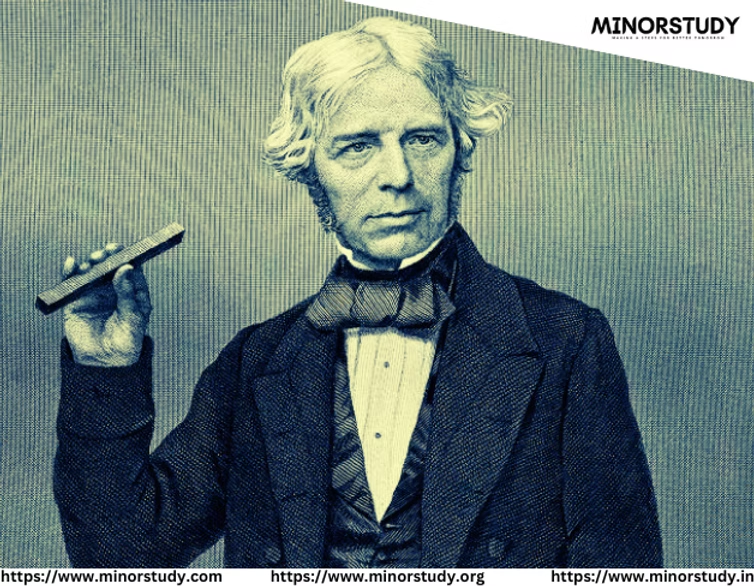Michael Faraday: The Father of Electromagnetic Science
Full Name: Michael Faraday
- About Michael Faraday
- Major Contributions
- 1. Electromagnetic Induction
- 2. Faraday’s Laws of Electromagnetic Induction
- 3. Electrolysis
- 4. Invention of the Electric Motor
- 5. Faraday Cage
- 6. Diamagnetism
- Historical Significance
- Timeline
- Interesting Facts
- Why Is Michael Faraday Important?
- Legacy and Impact
- Famous Quotes
- Blessings to Society
Born: September 22, 1791, Newington Butts, England
Died: August 25, 1867, Hampton Court, Middlesex, England
Nationality: British
Fields: Physics and Chemistry
Known For: Electromagnetic Induction, Faraday’s Laws of Electrolysis, Invention of the Electric Motor
About Michael Faraday
Michael Faraday was one of the most influential scientists in history, renowned for his groundbreaking work in electromagnetism and electrochemistry. Despite limited formal education, Faraday’s experimental genius and curiosity enabled him to uncover the fundamental principles of electromagnetism, which form the basis of modern electrical engineering and technology.
Major Contributions
1. Electromagnetic Induction
Faraday discovered that a changing magnetic field could induce an electric current in a conductor.
This principle, known as electromagnetic induction, is the foundation of modern electric generators and transformers.
2. Faraday’s Laws of Electromagnetic Induction
These laws mathematically describe how voltage is induced in a coil by a changing magnetic field.
3. Electrolysis
Faraday formulated the laws of electrolysis, establishing the quantitative relationship between the amount of electric charge and the chemical reaction it produces in an electrolyte.
4. Invention of the Electric Motor
Faraday built the first simple electric motor, demonstrating that electricity could produce mechanical motion, a critical step toward modern machinery.
5. Faraday Cage
Invented the Faraday Cage, a structure that blocks external electric fields, which is still used for shielding sensitive electronic equipment.
6. Diamagnetism
Faraday discovered that all substances exhibit a weak form of magnetism called diamagnetism in the presence of a magnetic field.
Historical Significance
Faraday’s experiments and discoveries laid the groundwork for the electrical age. His research in electromagnetism and electrochemistry not only advanced science but also paved the way for practical applications, including electric power generation, telecommunications, and electronics.
Timeline
1791: Born in Newington Butts, England, to a poor family.
1812: Became an assistant to Sir Humphry Davy at the Royal Institution.
1821: Built the first electric motor.
1831: Discovered electromagnetic induction.
1836: Invented the Faraday Cage.
1867: Passed away at Hampton Court, leaving an enduring scientific legacy.
Interesting Facts
Self-Taught Scientist: Faraday was largely self-educated, having read extensively and attended lectures.
Humble Origins: He was the son of a blacksmith and started his career as a bookbinder’s apprentice.
No Formal Math Training: Despite limited mathematical skills, Faraday relied on intuitive and experimental methods.
Devout Christian: His religious beliefs deeply influenced his worldview and ethical approach to science.
Declined Knighthood: Faraday refused both a knighthood and burial in Westminster Abbey, valuing humility over honor.
Why Is Michael Faraday Important?
Faraday’s discoveries are essential to understanding the behavior of electric and magnetic fields. His work on electromagnetic induction directly led to the development of electric power systems that revolutionized industry and society. He demonstrated the practical applications of scientific knowledge, shaping the modern technological world.
Legacy and Impact
Michael Faraday’s contributions have enduring significance. His discoveries in electromagnetism are the backbone of technologies like electric generators, transformers, and motors. Faraday’s emphasis on experimentation and observation remains a cornerstone of the scientific method.
Famous Quotes
“The important thing is to know how to take all things quietly.”
“Nothing is too wonderful to be true, if it be consistent with the laws of nature.”
Blessings to Society
Faraday’s work has improved countless aspects of modern life, from electricity powering our homes to the devices that drive global communication and industry. His legacy is a testament to the power of curiosity, perseverance, and dedication to science.








